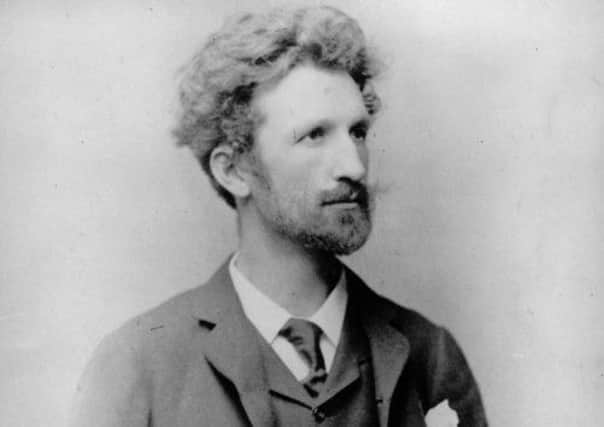Andrew Wilson: Nationalism a noble cause


He straddled the roots of nationalist and Labour Scotland with ease as he campaigned for both socialist policies and for independence; he believed, as many did at the time and do today, that the interests of the two coincided.
There is so much more to his story than can be written here and he is worthy of further study by anyone interested in Scottish political history. The idea of a future exhibition on his life by the National Museum is to be encouraged.
Advertisement
Hide AdAdvertisement
Hide AdI mention this because last week I heard the part of his life that was devoted to independence described by the Scottish Labour leader, Johann Lamont, as “a virus that has affected so many nations and caused so much harm”. My word, how cheap the currency of political argument seems to have become that such distasteful abuse trips so easily off the tongue of otherwise good and committed people who should and do know better!
On my wall at home is a picture of Cunninghame Graham gifted to me in 2002 by my old colleague and dear friend Winnie Ewing, the mother of the first Holyrood Parliament and living legend of the SNP.
I had been visiting her lovely home in Morayshire and was banging on about Cunninghame Graham as if I had discovered him. Such was the precociousness of my youth. I was busy telling her about his quote that had inspired me to use a newspaper column to call on Scots to back England in the 2002 World Cup, which was moderately controversial at the time:
“The enemies of Scottish Nationalism are not the English,” he told a rally in 1930, “for they were ever a great and generous folk, quick to respond when justice calls. Our real enemies are among us, born without imagination.”
Winnie listened patiently to my passionate quotation before taking me to her study and showing me her picture of the actual speech being given. A lesson in life. Days later a framed copy arrived at my home. I treasure it.
The quote is of course a powerful and liberating thought. In essence, blame ourselves, not anyone else for our ills. For crying out loud, imagine a better country and believe in yourselves. Remember, this man was the founder president of Keir Hardie’s Scottish Labour Party.
It is a theme picked up by possibly the greatest person of the 20th century, Mahatma Gandhi. Gandhi, lest we forget, was another nationalist. Peaceful, profound and powerful: “Be the change you want to see in the world.”
Take charge of self, show self-responsibility and reliance, own your own problems. Virus? Really?
Advertisement
Hide AdAdvertisement
Hide AdAnd it is not just the great men and women but thousands and thousands of other committed souls who believe so much in their own community that they want to give it the power to affect the change they want to see. Of course, good people can disagree on the target of their endeavours. But is it really right, just or fair to try and denigrate and belittle the civic nationalism of Scotland in this way? What chance for the healing unification of what must come next, whatever choice we make?
Douglas Alexander talked about the “vitriol” in the debate that could scar the country for years to come. He is correct and his colleagues should start by learning from Gandhi and trying to control what they can control and “being the change” they want to see in their own world. Rather than pointing the finger at other parties’ supporters, politicians could do with changing the culture and conduct of their own side, and that starts with behaviour and tone from the top.
The foolish, puerile abuse of trolls on the social media is one thing. Here we have the leader of a political party describing the ideas of her opponents as a virus. Damian McBride would be proud.
The intent was to leave the impression that her civilised democratic opponents, with whom she shares so many values and ideas – as her own party colleague Ian Smart wrote in this space last week – were no better than the racists and bigots that have infected many countries’ politics in times of strife and discord.
What space does it leave for tackling the real disgrace of fascism, Nazism or Uber Alles nationalism at its worst? And what signal does it give to her own shock troops? It says all abuse is fair game and damn the consequences on the reputation of the politics of our country and culture of the democracy she hopes to lead.
But I think too highly of the Labour leader, and of her party colleagues, to think they believe that.
It is also lousy politics. As the volume of noisy hate increases, the engagement of willing hearts and minds subsides. And the vacuum that is left is where, history tells us, that real viruses grow. «
Twitter: @AndrewWilsonAJW